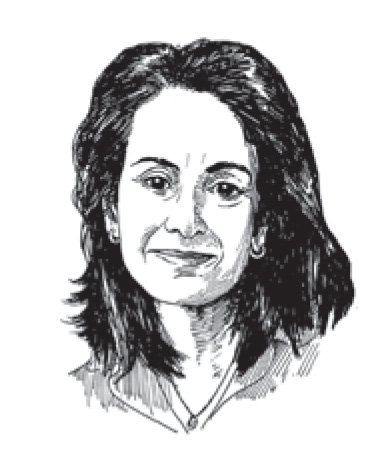This is the first of three pieces in which I’ll be interviewing thinkers working on issues of justice, solitary confinement, and incarceration. Over the next several months, I’ll talk with Lisa Guenther about what solitary confinement does to bodies and minds, and to Linda Ross Meyer about what might happen if we start talking about justice in terms of mercy rather than retribution.
In this issue, I speak with Colin Dayan about how, in courts and prisons in the U.S., focus has shifted from prisoners’ rights to questions of how best to keep a prison system running. In that move, we have lost sight of the human individual. Dayan is Robert Penn Warren Professor of the Humanities at Vanderbilt University, recipient of Guggenheim and Danforth fellowships, an elected member of the Academy of Arts and Sciences, and the author of The Law Is a White Dog: How Legal Rituals Make and Unmake Persons.
—Jill Stauffer
THE BELIEVER: In The Law Is a White Dog you show both that solitary confinement in supermax units—special control units within some prisons—destroys the personhood of prisoners, and that U.S. courts have used legal language to sanitize the practice and render it permissible. Let’s start by getting a sense of what is so damaging about these supermax units.
COLIN DAYAN: The isolation is unremitting. Prisoners are locked alone in their cells for twenty-three hours a day. Their food is delivered through a slot in the door of their eighty-square-foot cell. They stare at unpainted concrete walls onto which nothing can be put. Except for the occasional touch of a guard’s hand as they are handcuffed and chained when they leave their cells, they have no contact with another human being. Inmates have described life in the massive, windowless supermax as akin to “living in a tomb,” “circling in space,” or “being freeze-dried.” Some are held in these conditions for years or decades.
BLVR: No reading materials, no possessions, no art on the walls, no letters or phone calls from the outside world. If to be in the world is to be with others, then when you take from a person everything that links him to the human world, you refuse him human status. Or: to be without others is to lose the world. To me that sounds like an excess cruelty that we don’t associate with legal practices in modern democracies.
CD: I know. Basically, alongside the death penalty, we have invented a new form of death—a death-in-life that needs no judicial decision and is not open to scrutiny. Basic human needs—food, clothing, shelter: the constitutional minima—are met, but the risk of mental trauma and psychological decompensation is high. These...
You have reached your article limit
Sign up for a digital subscription and continue reading all new issues, plus our entire archives, for just $1.50/month.
Already a subscriber? Sign in





